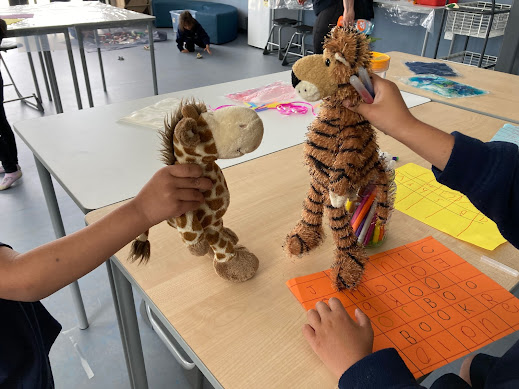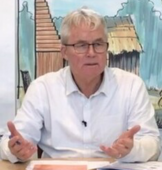Unteaching Racism
Staff Meeting: Unteaching Racism
This topic stirs my heart and triggers a lot of thoughts. It particularly touches my hinengaro and wairua. Here is what I'm feeling and thinking right now...
The New Narrative....
We have the opportunity to enter into a new story of celebrating, cherishing and valuing students' culture and Te Tiriti o te Waitangi in our kura. The high percentage of Māori students who go through kurakaupapa and go on to achieve NCEA qualifications is a wonderful doorway into a new story for our Maori students. These are the stories I long to hear. These are the stories that I long to be part of:
- stories of students experiencing cultural safety and success in kura
- stories of students teaching their teachers their culture
- stories of students empowered to lead revitalisation of their culture within their kura
- stories of students proud and empowered to invite their whānau to their kura
- stories of students expressing their culture in meaningful ways within kura
- stories of students empowered to find real solutions to real world problems in our communities
The seeds of a new story are out there in their hundreds - schools where the narrative is changing. We need to hear these stories. We need to recognise what success looks like and how these "way-finding" schools and organisations are making it happen.
ERO has a range of videos sharing stories of schools making a difference including Invercargill Middle School. This kura displayed leadership in the way they worked together as a staff team to increase student achievement in a culturally inclusive way.
I am also inspired by Mahi Tahi Media, co-founded by Te Arahi Maipi, Peter Tainui and Jade Maipi. Their Indigenous 100 video podcast is a rich source of stories from Māori "thought leaders" who are at the top of their field.
A narrative of success is particularly important because the dominant narrative is not helpful. The dominant narrative focuses on stories of racism and stories of underachievement. When we tell these stories, do they help us or do they reinforce the status quo? In reality, these stories prick our conscience but they do not create the momentum we need to see change accelerate. One of my heroes, Alan Scott, puts it this way: "We need a posture, not a gesture."
 |
| Alan Scott |
I think I understand why these unhelpful stories are so "popular." Negative news is much more dramatic than good news. Human nature is drawn to the negative. Researcher and speaker, Burnee Brown, makes the observation that there are many more studies done on negative emotions than positive emotions. In the NZ education context, I think we have got a pretty good handle on the problem. Now is the right time to shift our focus and shine a spotlight on the solutions.
 |
| Brene Brown |
A personal journey
I am a member of the dominant culture. Do I have a role to play? Is it inevitable that I push my culture onto the students I teach? Sometimes it feels like my world and their worlds are so different. However, I've come to the conclusion that I can be part of the solution.
- I can recognise that the system is rigged in favour of the dominant culture. I can be honest about this with our whānau and older students. They're very perceptive. They know.
- I can be a teacher who seeks to empower students to overcome the racist challenges they face. I have been reflecting on what this means for me and have framed it around the principals of Te Tiriti o te Waitangi.
Partnership
Could learning together truely be a partnership?? I think it can, if I can share power with my students. Maybe students could truely be in charge of their own learning. To quote a wise mentor... "We do things with people, we don't do things to people." I can seek student voice, construct plans for learning alongside students and together incorporate what they value. It is a new way of working, but could be the start of a new story.
An experienced Māori leader once shared three important words with me: by, for, with. She explained that the most effective work is done by Māori, for Māori with Māori. So where does that leave me as a Pākehā teacher? I think there is a wonderful opportunity to see our students and whānau be the teachers. To me, this is ako. If we value and empower Māori students and whānau to give what they have, then we have enabled a "by, for, with" approach.
This is one of the reasons I'm so excited about developing students as leaders. It's about sharing power - I want them to be in the position where they can effectively make the important decisions about their learning. It's about showing our tamariki they have so much to contribute. It's about coaching them in the skills of teaching others.
Participation
I can participate in this beautiful country because of Te Tiriti o te Waitangi. The students of our kura deserve to have access to all the opportunities we have in this land and also within their culture. As someone from the dominant culture, perhaps I have a part to play in sharing the power, resources, knowledge and skills I have instead of guarding them out of self-interest. Perhaps I have a part to play in listening and advocating.
Protection
The irony is that the dominant culture usually seeks to protect the power that they have. We have the opportunity to flip that. It will take courage and it will take careful thought, but together we can protect the taonga of our Māori whānau. Those of us in the dominant culture often fail to realise that the taonga of our Māori brothers and sisters actually enriches us also. As a teacher, I have the opportunity to train my brain to look for strengths and see the value in difference. As a teacher, when I cherish taonga, such as te reo, tikanga and whakapapa I help to protect those treasures.
The divide we have to cross
The racist issue is a huge challenge. We're working against human nature here. Our brain looks for patterns and short cuts. These include racial stereotypes. This is particularly true when we are under pressure - and teachers experience a lot of pressure. Humans continually create 'in' and 'out' groups based on difference. We see those on the 'out' as threats. Furthermore, we all have a worldview and we tend to only see information that enforces our current worldview and experiences. There is a large divide to cross if we're going to enter into a new narrative. Somehow we have to shortcut the racial stereotype worldview feedback loop. My wairua, my spiritual worldview, tells me that we need a power greater than ourselves to make this happen.
An analogy from nutrition
Nutritionist, Dr Julie Bhosale explains that it's not enough to tell people the science about healthy eating. The research shows that there is a great need to translate the science into something that is useful for everyday people. Food that is nutritious, delicious, affordable, available, low waste and time efficient. That is no easy feat. But that's why Dr Julie writes recipe books - the recipes translate science into everyday life. And we eat them because they are delicious and then we feel good because they are also healthy. That becomes the reward that drives new eating habits.
 |
| Cookbook by Julie Bhosale |
We need that in education (and in many areas of society.) We need leaders who can translate research into a recipe that is practical and delicious. Educational recipes that accelerate progress, value the learner, motivate the learner and are time efficient for the teacher. The results will be the reward that drives new teaching habits.
New habits
Entering into a new narrative means taking on new habits. Above, I discussed to some of the habits I am seeking to cultivate framed around the Treaty of Waitangi. A large pile of research is available for anyone wanting to know about high impact teaching strategies. Teachers in Aotearoa are desperate for practical educational recipes. What do educational recipes look like? I think they look like stories of those who are already "doing the stuff". We need stories that show us how to be effective, culturally responsive teachers. Then we need courageous classroom teachers and senior leaders who can share these story recipes effectively and prioritise the one thing we need to do first, so that we are not overwhelmed. We need to be empowered to play out these stories in our own practise. We need to do this together, not individually.
A Culture of Honour
One habit which I think would generate significant change is the habit of honour. If you look within traditional Māori culture, I think you will find this value come through strongly, although I don't yet know how to express it or define it in Māori cultural terms. What does honour look like within a kura? Educationalist, Paul Dix offers some questions to teachers which I think point us toward a habit of honour, especially towards our students..
- What would the best teacher in the world do right now?
- What would I say if the parent of this student was looking over my shoulder?
I have a spiritual worldview and another one of my heroes, Bill Johnson, defines honour this way: Thinking and acting toward everyone the way Jesus would. Now, I certainly don't do that yet, but that's the person I want to be.
In closing...
My challenge to myself is to listen to and celebrate the stories of Māori achieving educational success as Māori. I think the challenge for all of us is to accept the invitation into this story and to be part of a partnership that replicates this story for many, many tamariki in Aotearoa.






This comment has been removed by the author.
ReplyDeleteAs I've reflected more on this...
ReplyDelete- Personal stories of racism are very important to listen to and acknowledge. We have to acknowledge people's hurt and sit with the uncomfortableness and grief.
- I'm not saying, "We should just move on." I'm not saying we should ignore the painful experiences of racism.
- I'm Pākehā, and I've only recently realised what a huge issue this is. My Māori brothers and sisters have been dealing with racism for generations. I need to acknowledge that I'm a newcomer to this issue. My hope is to walk alongside our Māori whānau with much aroha as we work through how we deal with racism in our schools and our country.